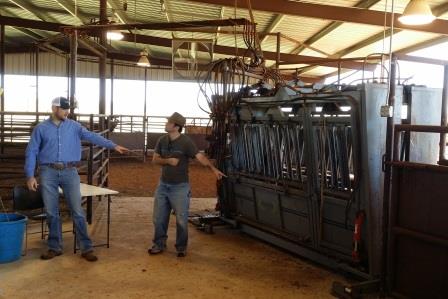 Within every industry there are competing ideologies.
Within every industry there are competing ideologies.
The solutions that will unify these views are rarely as simple as we'd wish them it to be.
The livestock industry is no exception, should we treat and manage livestock to prevent disease, or use medication to treat the disease after the animal has become infected?
It is clear that there is no consensus on this issue, the margins between different regulations in one country compared to another can be paper thin.
Major livestock producing countries have a clear set of rules and regulations to determine what medications can and can't be used within the industries. It is of interest that the countries reliant on exporting livestock products use less medication and antibiotics than countries who produce food for their own domestic market.
Exporting countries have to comply with protocols issued by importing countries; quite often these protocols are more stringent than their own domestic requirements.
Whereas countries that have a very low level of product trace back through the supply chain typically follow reactive measures, waiting till an animal is sick and then treating only this animal and not the entire group.
This "less is more" approach is in contrast to developing countries, in which "more is more" is the more predominant strategy. Even smaller herds in developing countries are being encouraged to provide more medication, in order to stem the spread of disease to larger producers in the same country.
 So why do agriculture exporting countries use less medications?
So why do agriculture exporting countries use less medications?
Regulations are being driven by a growing consumer need for products, which contain approved medications, to be sent to the EU and other regions. This could be a logical decision or just an emotional response to the consumers' needs.
The impact of this can be seen in Canada's 14 year plan (http://globalnews.ca/news/2035929/medicating-meat-whats-canadas-plan-for-animal-antibiotics/) to reduce the amount of antibiotics used in the livestock industry, but it is not just the consumers who are pushing for change, the producers themselves are just as desperate for an alternative strategy.
They've seen that the drugs aren't working as well as they should be and are seeking better options.
One of the biggest hot button issues is that of medication resistance in both livestock and humans, an issue faced by all pharmaceutical companies.
However, in terms of a tangible link between eating animals treated with certain antibiotics and a detrimental antibiotic resistance effect on humans, we still don't have an answer. Studies are ongoing and the industry is hoping that data can shed some light on this concern, one way or the other.
I'm certainly not here to say we shouldn't eat meat. In fact, the average person's diet consists of much more harmful products than a medium rare steak served with a salad.
My attitude is simply that we need to do a better job of educating people on what is being used on animals and then justify why those measures are being taken. There needs to be greater support to the livestock industry, with more solutions that are designed to bridge the gap between consumer and farmer. These solutions need to be easy to implement and ably supported, with the added benefit of producers reducing costs while increasing efficiency and profit.
I feel that any advances have to accommodate farms of all sizes, whether they are in developed or developing countries.
A good solution fixes a problem. A great solution fixes a problem for everyone.
David Edwards, Miguel Brinlee from Davoodi
Davoodi has developed My Pocket Farmer™ and AutoMed™ which provides an intelligent medication delivery device due to be launched later this year. We are a global team that blends hands-on agricultural experience with software and technology. Our headquarters is in Fyshwick Australia. Formed in 2012, Davoodi is focused on delivering solutions to farmers focused on raising livestock sustainably. Our goal is to keep abreast of industry directions, and provide timely solutions that aid in the areas of compliance, management and organsation.


